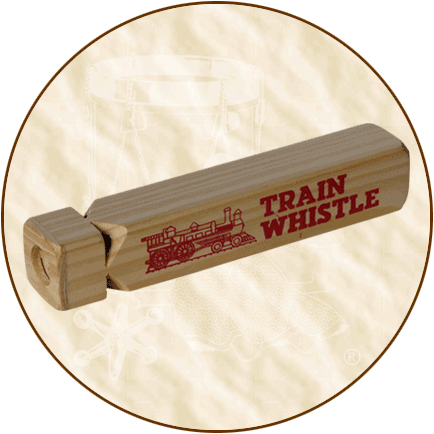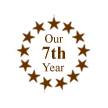.
Continued from product description on
Classic Toys & Puzzles' Page
Three...
Historical
Background: The train whistle played a significant role
in the history of American trains. The crew of the train needed
to be able to communicate with each other from the front of the
train (the locomotive) to the end of the train (the caboose).
They devised three different ways to communicate without yelling.
They basically used bells, flags and sounds, but they also used
lanterns, as well as hand and color signals.
Generally, railroad trains are required by various state laws
to sound their horns in advance of all crossings. These horns
are extremely loud at 96 decibels and have become a nuisance
to those who live near such crossings. But the reasons for these
loud train whistle sounds are for our own safety. Train whistles
(now horns) are sounded as a warning of the approaching train.
Florida enacted a ban on locomotive horns, but it was ordered
removed after the accident rate doubled during the ban.
Whistle or horn signals are used when a train was ready to
leave the station or to back up. Other whistle signals were used
as warnings when the train was approaching a crossing or when
the train was stopping. There are more signals instructing flagmen
when to return to certain areas, inspecting the brake system,
acknowledgment and, of course, emergencies.
Train whistles, as toys, were probably first made in the late
1930s. These whistles were shaped like a train but only had one
note. These kinds of train whistles were made of hard plastic,
Bakelite (1950s), lithographed tin, and vinyl. Two-note train
whistles were made, and then the wooden four-note train whistle
became popular toward the end of the 20th century.













